#wei infantry
Note
Star General, here is the Force Organizational Chart of the Jing Yi Wei.
I know this is not a lot but we are ready to kill some Blakeists.
- Commander Yuejing
Fast Assault Squad:
x2 Bjorn "Mauler"
x2 Bjorn "Hunter"
x1 Bjorn "Roar"
Main Assualt Squad
x3 SOLAHMA ASSAULT BATTLE ARMOR (Society config)
x2 HOBGOBLIN II OMNI-PROTOMECH (Prime config)
Direct fire support squad
x2 NIXE OMNI-PROTOMECH (Alt-D config)
x2 SOLAHMA ASSAULT BATTLE ARMOR (LRM config)
x1 NIXE OMNI-PROTOMECH (Prime Config)
Anti infantry assualt Squad
x2 Bjorn "Hunter"
x3 LINDWORM OMNI-PROTOMECH (Alt-E config)
Did you use the word "Society"?
If so, I advise staying EXTREMELY clear of any Clan warrior, but ESPECIALLY Star Commander Lewis.
Understand, this is for your own safety.
7 notes
·
View notes
Text
Annals of Emperor Wen of Zhou, Part 6 (ZS01)
[Yuwen Tai rescues the Emperor and brings him to Chang'an. Alas he dies a few months later but what can you do.
Meanwhile, Gao Huan puts his own Emperor of Wei on the throne, formalising the split between Eastern and Western Wei.
Also the first appearance in these annals of one Li Hu, grandfather of a certain Li Yuan. Like Yuwen Tai, Li Hu came from the Wuchuan garrison.
This in fact concludes Scroll 1 of the Zhougshu which can be read all in one page here:
https://bookofzhou.tumblr.com/zs01
The Annals of Emperor Wen continues in Scroll 2, which chronicles Yuwen Tai's time as the chief minister of Western Wei.]
Taizu spoke to the various generals, saying:
Though Gao Huan's wisdom is insufficient, he has deceptions to spare. Now he makes noise of intending to go west, but he is thinking about entering Luo. I intend to order Kuo Luo to lead more than 10 000 cavalry and infantry to draw east from Jing# province, and Wang Pi to lead 10 000 armoured soldiers and first occupy Hua province. If Huan comes west, Wang Pi is sufficient to manage to oppose and ward him off. Similarly, if he enters Luo, Kuo Luo will immediately assail Fen and Jin. I will right away quickly harness up and proceed straight towards the capital city. [We will] make him [if] he advances have worries about interior concerns, [and if] he withdraws, to have the appearance of being followed. In a single stirring we will greatly settle [matters], this is the best strategy.
Everyone in the multitude declared it good.
Autumn, 7th Month [26 July – 24 August 534], Taizu led the multitudes to issue out from Gaoping. The van army arrived in Hongnong. But Shenwu of Qi bit by bit put pressure on the capital city. Emperor Wei personally commanded the Six Armies, and stationed at Heqiao [“He Bridge”]. He ordered the [General of] Guards of the Left, Yuan Binzhi, and the [General who] Leads the Army, Husi Chun to garrison Wulao [i.e. Hulao], and dispatched messengers to announce it to Taizu. Taizu spoke to left and right, saying:
Gao Huan in several days has travelled eight or nine hundred li. Discerning what the troops are averse to, the correct thing must be to take the advantage to strike him right away. However the Ruler and Sovereign, due to the weight of the ten thousand vehicles, is unable to decide on battle, and just now hems the fords and occupies defences. Moreover the He is ten thousand li long, and to shelter behind it is difficult. If [someone] at single place obtains a crossing, the great affair is done for.
He promptly used Great Chief Controller Zhao Gui as Acting Tribunal of a Detached Circuit, to cross over from Puban and press on to Bing province, and he dispatched Great Chief Controller Li Xian, with 1 000 elite cavalry, to hasten to Luoyang.
It happened that Binzhi and Husi Chun contended for authority and did not cooperate. Binzhi thereupon abandoned Chun and turned back, lying to the Emperor by stating that Gao Huan's troops had arrived.
7th Month, dingwei [21 August], the Emperor thereupon led light cavalry from Luoyang to enter the Passes. Taizu prepared rites and guards to offer welcome, and presented himself and was received in audience at Dongyang Relay station. Taizu took off his cap, sobbed and wept, and apologized, saying:
Your Subject was unable to put a stop to the bandits and oppressors, and thereupon caused the Driving Carriage to move his favour. [I] request arrest [by] the minister of justice in accordance with the book of punishments.
The Emperor said:
Your Excellency's loyalty and integrity is revealed to court and countryside. We, due to not being virtuous, carry the weight for causing the bandits. Seeing [you] today, [We will] very much make use of [Our] shamelessness. The responsibility lies with Our person, there is nothing to assuage or apologize for.
Then he served the Emperor in making a capital at Chang'an. He flung away the grasses and weed and established an imperial court for the government of army and state. In everything he picked Taizu to decide them. He continued with increasing his conferral to Great General, Inspector of Yong province, and Combined Prefect of the Masters Writing, advanced his fief to Duke of Lüeyang commandery, to separately set up two Masters of Writing and dispose of and allot according to the situation, and to put aside Archer-Servant of the Masters of Writing. The remaining was like before. Taizu firmly declined. A decree sincerely elucidated on it, and he therefore accepted.
Earlier, when the Wei Emperor was at Luoyang, he conferred the Senior Princess of Pingyi as a match for Taizu, but they had not yet reached the joining the together and handing over when the Emperor moved west. Reaching this point, he decreed that Taizu wed her, and designated him Chief Commandant of Escort Cavalry.
8th Month [25 August – 23 September], Shenwu of Qi assailed and captured Tong Pass, and encroached upon Huayin. Taizu led the various armies to station at Bashang to wait for him. Shenwu of Qi kept behind his general Xue Jin to defend the Pass and then withdrew. Taizu therefore advanced to chastise Jin, captured his soldiers, 7 000 men, and turned back to Chang'an. He advanced in rank to Chancellor.
Winter, 10th Month [23 October – 21 November], Shenwu of Qi pushed forward Wei's King of Qinghe, Dan's son, Shanjian as ruler, and moved the capital to Ye. This was Eastern Wei.
11th Month [22 November – 20 December], he dispatched the Ceremony Similar Li Hu, together with Li Bi, Zhao Gui, and others, to chastise Cao Ni in Ling province. Hu guided the He to pour into him. Next year [i.e. 535 AD], Ni surrendered, and they moved his prominent leaders to Xianyang.
Intercalary 12th Month [20 January – 17 February 535], the Filial and Martial [xiaowu] Emperor collapsed. Taizu, together with the crowd of excellencies, settled the records, and venerated and installed Wei's King of Nanyang, Baoju, as successor. This was the Civil [wen] August Emperor.
5 notes
·
View notes
Text
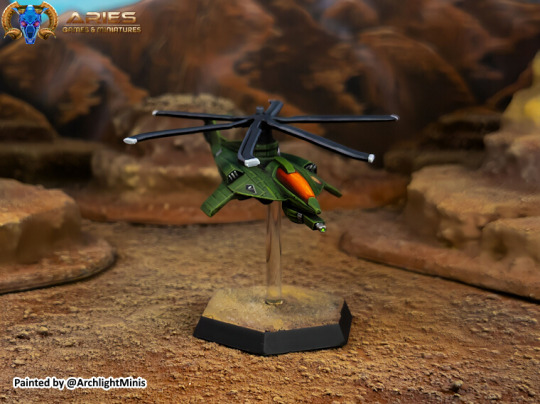
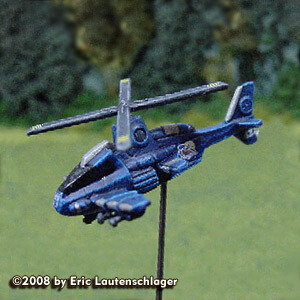
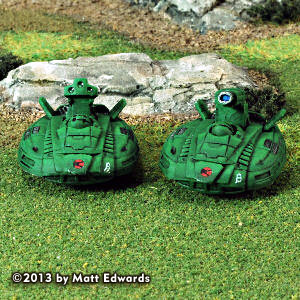
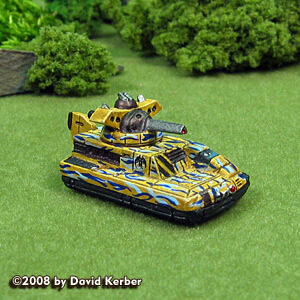

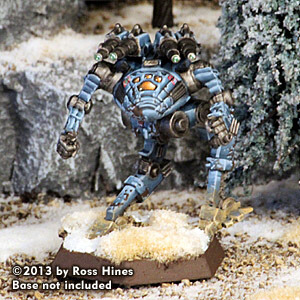


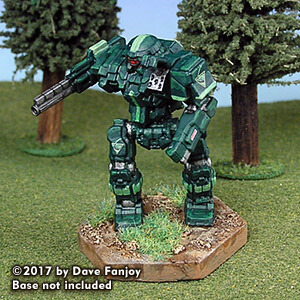

Big batch of restocks are in from Iron Wind Metals!
20-235 Partisan Heavy Tank
20-286 Hawk Moth VTOL
20-310 Forestry / Forestry MOD Variants
20-475 Jackrabbit JKR-8T / JKR-9R
20-5004 Wolverine II WVR-7H
20-5019 Kestrel VTOL
20-5024 Prefect PRF-1R
20-5053 Peacekeeper PKP1-A
20-5069 Stiletto STO-6S
20-5100 Vulpes VLP-1D
20-5121 Lu Wei Bing LN-4B
20-5123 Wendigo Prime
20-637 Mantis Light Attack VTOL (2)
20-669 Anvil ANV-3M
20-685 Bandit Hovercraft (2)
20-692 Hercules HRC-LS-9000
20-727 Karnov UR Transport
20-769 Excalibur EXC-B2
20-783 J. Edgar Hover Light Tank (2)
20-800 Hex Bases (4)
20-867 Enforcer III ENF-6M
20-985 Arcas (Standard)
AC-006 Flight Base
AC-009 Medium Cast Stem
AC-010 Large Cast Stem
BT-005 Grenadier Battle Armor
BT-007 Rottweiler Battle Armor
BT-019 Leopard
BT-028 Cavalier Battle Armor
BT-067 Golem Battle Armor
BT-097 Chippewa Micro Fighter
BT-118 Shilone Micro Fighter
BT-129 Infiltrator Mk I Battle Armor
BT-133 Corona Battle Armor
BT-154 Tatsu Micro Fighter
BT-214 Deva Dominus
BT-226 Fast Recon
BT-231 Ironhold Battle Armor
BT-238 VTOL Infantry
BT-260 Sprint Scout VTOL
BT-369 Elemental Battle Armor (3)
BT-380 Hydra Protomech
BT-381 Basic Inner Sphere Battle Armor (3)
BT-384 Achileus Battle Armor (3)
BT-388 Salamander Battle Armor (3)
BT-391 Fenrir Battle Armor (1)
BT-412 Amazon Battle Armor
BT-413 Marauder Battle Armor
BT-437 Regulator Hovertank (Arrow IV)
DT-001 Big Demolisher Tank
OP-118 Marauder MAD-3D, 5S, and 5T Gun Sprue
20-5189C Catapult CPLT-C3 / C5 Arm Sprue
20-5190C Dasher II (Standard) / 2 Arm Sprue
20-605F Masakari (Omni) Left Arm
20-772B Caesar CES-3R Arms / Weapon Sprue
#battletech#alphastrike#ironwindmetals#battletechalphastrike#miniatures#catalystgamelabs#battlemech#battletechminiatures#battletechpaintingandcustoms#classicbattletech#miniaturewargaming#mechwarrior#mecha#gaming#boardgames#tabletop#tabletopgames#tabletopgaming#wargaming#wargames#hobby#scifi#sciencefiction#miniaturepainting#mech#6mmminis#6mmscifi#dougram#gundam#robotech
0 notes
Text
Varangian Guard (Greek/Scandinavian, Eastern Roman)
Immortal Infantry (Persian, Achaemenid Empire)
Janissary Infantry (Turkish, Ottoman Empire)
Deli Calvary (Turkish, Ottoman Empire)
Eagle Warrior (Mexica, Aztec Empire)
Jaguar Warrior (Mexica, Aztec Empire)
Berserker (Nordic)
Companion Calvary (Greek, Hellenistic Empire)
Winged Hussars (Polish, Polish–Lithuanian Commonwealth)
Scarae / Caballarii (Frankish, Carolingian Empire)
Hearthweru (Anglo-Saxon)
Wei Wuzu (Chinese
Jin Beifu Army (Chinese
Xuanjia Army / Xuanjiajun (Chinese
Beiwei Army (Chinese)
Gendarme Army (French)
Tercio Army (Spanish, Hapsburg Spanish Monarchy)
Cavalieri Addobbati (Italian)
Mubarizun (Arabic, Rashidun Caliphate)
Grivpanvar (Persian, Parthian / Sassanian Empire)
Timarli Sipahi, Silahtars (Turkish, Ottoman Empire) Kapikulu Sipahis
Mamluks (Various, typically Europeans, Abbasid Caliphate)
Argyraspides (Greek, Hellenistic Empire)
Sacred Band of Carthage (Phoenician, Carthaginian Empire)
Mobile Guard (Arab, Rashidun Caliphate)
Jazāyerchi (Persian, Afsharid Dynasty)
Triarii (Latin, Roman Republic / Empire)
Housecarls (Scandanavian)
Red Devil Brigade led by li Naomasa ( Japanese)
Takeda Red Calvary Core (Japanese)
Qingzhou Corps (Chinese)
Medjay (Nubian, Egyptian)
Legio X Equestris
Qizilbash
0 notes
Text
Story concept 13 pt 3
The Dragon of Beijing and Li Wei returned to their base, where they were greeted with cheers and applause. They had accomplished their mission, and avenged their comrades. They had killed the Eagle of New York, and dealt a heavy blow to the Roman Alliance. They had made history, and earned glory. They were hailed as heroes, and awarded the highest honors.
They were also summoned by the Emperor, who wanted to meet them and congratulate them personally. They were flown to the Forbidden City, the imperial palace in Beijing, where they were received with great pomp and ceremony. They were escorted to the throne room, where they bowed before the Emperor, the supreme ruler of the Chinese Empire and one of the major leader's of the Eastern Coalition.
The Emperor was an old and wise man, who had ruled for over fifty years. He had seen the rise and fall of many empires, and the changes of the world. He had led his people through many wars and crises, and had made them strong and prosperous. He had also sought peace and harmony, and had tried to avoid unnecessary conflicts. He had hoped to end the war with the Roman Alliance, and to reach a peaceful coexistence. But he had failed. The war had dragged on for too long, and had caused too much suffering and destruction. He had no choice but to fight, and to win.
He looked at the Dragon of Beijing and Li Wei, and smiled. He praised them for their bravery and skill, and thanked them for their service. He told them that they had done a great deed, and that they had changed the course of the war. He told them that the Roman Alliance was on the verge of collapse, and that the Eastern Coalition was on the verge of victory. He told them that he had a final plan, a massive invasion, that would end the war once and for all. He told them that he needed their help, and that he had a special task for them. He told them that he wanted them to lead a huge army from the skies to the ground,that would march across Europe, and conquer the heart of the Roman Empire, and break its will to fight. He told them that he wanted them to reach Rome, and to capture the city.
The Dragon of Beijing and Li Wei were stunned. They had never heard of such an army or of a plan of that scale. They had never imagined such a mission, or such a target. They looked at each other, and then at the Emperor. They nodded, and accepted the task. They swore to obey the Emperor, and to serve the Empire. They swore to complete the mission, and to end the war. They swore to march to Rome, and to capture the city.
They were taken to a secret camp, where they saw the huge army. It was a vast and diverse force, with hundreds of thousands of soldiers from different tribes and nations. It had infantry, cavalry, archers, siege engines, and pilots. It had Huns, Goths, Persians, Mongols, Turks, and Arabs. It was named the Dragon's Horde. It was the most formidable and terrifying army in the world. It was the pride and hope of the Eastern Coalition.
They were also shown a secret weapon. It was a new and ingenious device, that could communicate with other devices over long distances. It was called the radio. It was the most advanced and useful invention in the world. It was the doom and despair of the Roman Alliance.
They were briefed on the mission, and given the instructions. They were told that they would fly with the army, and that they would have full command and authority. They were told that they would face little resistance, and that they would have to crush any opposition. They were told that they would have to fly fast and far, and that they would have to reach Rome before winter. They were told that they would have to siege the city, and that they would have to take it by force. They were told that they would have to fly back, and that they would have to survive. They were told that they would have to succeed, and that they would have to win.
.

0 notes
Photo
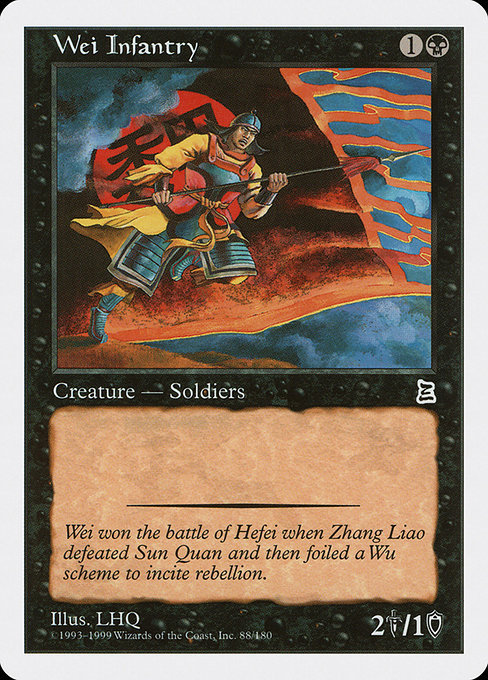
Wei Infantry
Wei won the battle of Hefei when Zhang Liao defeated Sun Quan and then foiled a Wu scheme to incite rebellion.
Artist: LHQ
TCG Player Link
Scryfall Link
EDHREC Link
18 notes
·
View notes
Text
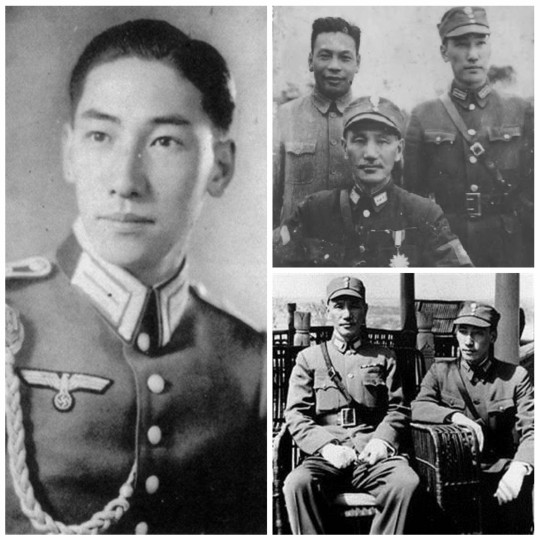
• Chiang Wei-kuo
Chiang Wei-kuo (traditional Chinese: 蔣緯國; simplified Chinese: 蒋纬国) was an adopted son of Republic of China President Chiang Kai-shek. Chiang served in the Wehrmacht before fighting in the Second Sino-Japanese War and Chinese Civil War.
Born in Tokyo on October 6th, 1916 when Chiang Kai-shek and the KMT were exiled to Japan by the Beiyang Government, Chiang Wei-kuo was the biological son of Tai Chi-tao and a Japanese woman, Shigematsu Kaneko (重松金子). Chiang Wei-kuo previously discredited any such claims and insisted he was a biological son of Chiang Kai-shek until his later years, when he admitted that he was adopted. As one of two sons of Chiang Kai-shek, Chiang Wei-kuo's name has a particular meaning as intended by his father. "Wei" literally means "parallel (of latitude)" while "kuo" means "nation"; in his brother's name, "Ching" literally means "longitude". The names are inspired by the references in Chinese classics such as the Guoyu, in which "to draw the longitudes and latitudes of the world" is used as a metaphor for a person with great abilities, especially in managing a country. Chiang moved to the Chiang ancestral home in Xikou Town of Fenghua in 1910. Wei-kuo later studied Economics at Soochow University.
With his sibling Chiang Ching-kuo being held as a virtual political hostage in the Soviet Union by Joseph Stalin having previously been a student studying in Moscow, Chiang sent Wei-kuo to Nazi Germany for a military education at the Kriegsschule in Munich. Here, he would learn the most up to date German military tactical doctrines, organization, and use of weaponry on the modern battlefield such as the German-inspired theory of the Maschinengewehr (Medium machine gun, at this time, the MG-34) led squad, incorporation of Air and Armored branches into infantry attack, etc. After completing this training, Wei-kuo completed specialized Alpine warfare training, thus earning him the coveted Gebirgsjäger Edelweiss sleeve insignia. Wei-kuo was promoted to Fahnenjunker, or Officer Candidate, and received a Schützenschnur lanyard. Wei-kuo commanded a Panzer unit during the 1938 Austrian Anschluss as a Fähnrich, or sergeant officer-candidate, leading a tank into that country; subsequently, he was promoted to Lieutenant of a Panzer unit awaiting to be sent into Poland. Before he was given the mobilization order, he was recalled to China.
Upon being recalled from Germany, Chiang Wei-kuo visited the United States as a distinguished guest of the US Army. He gave lectures detailing on German army organizations and tactics. Whilst in the northwest, Chiang Wei-kuo became acquainted with the local generals and organized an armour mechanized battalion to formally take part in the National Revolutionary Army. In addition, he spent some time in India studying tanks. There, Wei-kuo became a Major at 28, a Lieutenant Colonel at 29, a Colonel at 32 whilst in charge of a tank battalion, and later in Taiwan, a Major General. Chiang Wei-kuo was stationed at a garrison in Xi'an in 1941. Throughout the Second Sino-Japanese War he lead tank battalions. In 1944, he married Shih Chin-i (石靜宜), the daughter of Shih Feng-hsiang (石鳳翔), a textile tycoon from North West China. Shih died in 1953 during childbirth. Wei-kuo later established the Chingshin Elementary School (靜心小學) in Taipei to commemorate his late wife. After the war was over, communist and nationalist conflicts occurred which lead into the Chinese Civil War. During the Chinese Civil War, Chiang Wei-kuo employed tactics he had learned whilst studying in the German Wehrmacht. He was in charge of a M4 Sherman tank battalion during the Huaihai Campaign against Mao Zedong's troops, scoring some early victories. While it was not enough to win the campaign, he was able to pull back without significant problems. Like many troops and refugees of the Kuomintang, he retreated from Shanghai to Taiwan and moved his tank regiment to Taiwan, becoming a divisional strength regiment commander of the armoured corps stationed outside of Taipei.
Chiang Wei-kuo continued to hold senior positions in the Republic of China Armed Forces following the ROC retreat to Taiwan. In 1964, following the Hukou Incident and his subordinate Chao Chih-hwa's attempted coup d'état, Chiang Wei-kuo was punished and never held any real authority in the military again. In 1957, Chiang remarried, to Chiu Ru-hsüeh (丘如雪), also known as Chiu Ai-lun (邱愛倫), a daughter of Chinese and German parents. Chiu gave birth to Chiang's only son, Chiang Hsiao-kang, (蔣孝剛) in 1962. From 1964 onwards, Chiang Wei-kuo made preparations in establishing a school dedicated to teaching warfare strategy; such a school was established in 1969. He was also the Grand Master of the Grand Lodge of China from 1968 to 1969. In 1975, Chiang Wei-kuo was further promoted to the position of general, and served as president of the Armed Forces University. In 1980, Chiang served as joint logistics commander in chief; then in 1986, he retired from the army and became National Security Council Secretary-General. In 1993, Chiang Wei-kuo was employed as the advisor of the president of the Republic of China. After Chiang Ching-kuo's death, Chiang was a political rival of native Taiwanese Lee Teng-hui, and he strongly opposed Lee's Taiwan localization movement. Chiang ran as vice-president with Taiwan Governor Lin Yang-kang in the 1990 ROC indirect presidential election. Lee ran as the KMT presidential candidate and defeated the Lin-Chiang ticket. In 1991, Chiang's housemaid, Li Hung-mei (李洪美, or 李嫂) was found dead in Chiang's estate in the Taipei City. The following police investigation discovered a stockpile of sixty guns on Chiang's estate. Chiang himself admitted the possibility of a link between the guns and his maid's death, which was later ruled a suicide by the police. The incident permanently tarnished Chiang Wei-kuo's name, at a time when the Chiang family was increasingly unpopular on Taiwan and even within the Nationalist Party.
In the early 1990s, Chiang Wei-kuo established an unofficial Spirit Relocation Committee (奉安移靈小組) to petition the Communist government to allow his adopted father Chiang Kai-shek and brother Chiang Ching-kuo to be interred in mainland China.His request was largely ignored by both the Nationalist and Communist governments, and he was persuaded to abandon the petition by his father's widow in November 1996. In 1994, a hospital was supposed to be named after him (蔣緯國醫療中心) in Sanchih, Taipei County (now New Taipei City), after an unnamed politician donated to Ruentex Financial Group (潤泰企業集團), whose founder was from Sanchih. Politicians questioned the motivation. In 1996, the Chiang home on military land was finally demolished by the order of the Taipei municipal government under Chen Shui-bian. Chiang Wei-kuo died at the age of 80, on September 22nd, 1997, from kidney failure. He had been experiencing falling blood pressure complicated by diabetes after a 10-month stay at Veteran's General Hospital, Taipei. He had wished to be buried in Suzhou on the mainland but was instead buried at Wuchih Mountain Military Cemetery.
#world war 2#world war ii#second world war#history#chinese history#second sino japanese war#military history#german history#biography#chiang kai shek#taiwan
125 notes
·
View notes
Text
okay okay wait guys, hear me out: Ninefox Gambit!CQL AU
all right a quick crash course for those of you who haven’t read one of my favorite books in existence:
science fantasy space opera in which the hexarchate, formerly heptarchate, is divided into six factions: the Kel (military-infantry), the Shuos (military-intelligence), Vidona (education and executors of calendrical order), Rahal (legislation and jurisdiction), Nirai (science and research), Andan (culture and finance). The seventh faction, the Liozh (philosophy, leadership, and ethics) was eliminated when they contemplated that greatest of heresies, democracy
but anyway please take a moment to imagine:
the tyrannical regime of the Wen Sect, equipped with the Vidona deathtouch and more than willing to use it
the Twin Jades, two Liozh who narrowly escaped the purge thanks to 1) the intervention of Kel General Nie Mingjue, and 2) the invention of formation instinct
(little do they know that Lan Xichen is the greatest crashhawk ever to crash-and-burn down the hexarchate)
the Jiang Sect are the Shuos, which will take a bit of character massaging but look me in the eyes and tell me that you wouldn’t go for spymaster!Jiang Yanli in a heartbeat
(Jiang Cheng is Shuos infantry -- one of the best -- and GRUMPY about it)
Nie Huaisang, to no one’s surprise, is an Andan who occasionally moonlights as a Shuos
Wen Qing out here holding down the fort on the Nirai side of things
okay but really what I want out of this AU is Shuos Wei Wuxian, assassin and madman, visionary and tactician, the Archtraitor, the Immolation Fox, the prisoner of the black cradle
called out of the dark to break open the impenetrable ghost-shell of the Fortress of Burial Mounds
anchored to Kel Lieutenant Lan Wangji, solid, steady, signifier Ashhawk Sheathed Wings, one step away from excommunication and execution himself for his connection to the Liozh heresy,
and the way the two of them work together to burn down the hexarchate and every bloody sacrifice the calendar has ever stood for
#listen this concept smacked me over the head this morning and wouldn't let me go#I guess that would make the Jin Sect the Rahal but idk if they're relevant much anyway#but god what I wouldn't give to see the navigation of the anchor-revenant relationship between Lan Wangji and Wei Wuxian#and -- oh my GOD -- whatever the counterpart to Jedao Two would be in this AU#IT WRITES ITSELF#okay no I would actually die at 'thank you for the light'#I don't think you understand how much I adore this book#I wanted to write my thesis on it but it only had the most tenuous possible connection to my major#oh FUCK JEDAO TWO IS MO XUANYU#NO I DID NOT SIGN UP FOR THIS LEVEL OF PAIN#hi someone come scream with me about this AU please#Ninefox Gambit AU#notes to self
141 notes
·
View notes
Note
Is Wu mainly an infantry/bow based units? Do they have strong horse units?
It’s important to understand that every army employed various different weapons as appropriate to the situation. The majority of all these armies consisted of soldiers armed with spears and those with crossbows (usually with swords as a secondary weapon).
Wu did employ far fewer cavalry units than Wei did. There are a few reasons for this. The southern states didn’t have the infrastructure for large breeding programs, which Wei inherited from Han. What they could produce was not on the same scale as that seen in the north. Wei could also recruit mercenaries from the various nomadic peoples of the north (the Xianbei, the Wuhuan, and the Xiongnu) to supplement their armies. The auxiliaries of the south were not horsemen, so Wu didn’t have that option.
Nanzhong was actually the main producer of quality horses in the south, which is why it was so important that Shu keep control of it. This region provided horses to Shu, but there were also centuries-old trade routes between Nanzhong and Wu’s southern regions and it is safe to assume Wu also secured a share of its horses from there.
It is, however, important to understand that one of the biggest reasons for the lack of horses in the south is that the terrain wasn’t generally suited to mounted combat. The mountains and rugged terrain of the southwest was not conducive to the mounted tactics of the day. The southeast saw many rivers, swamps, marshes, and other such terrain that made mounted warfare very difficult. Horsemen just didn’t play a major role in the fighting in those regions.
The horses Wu and Shu secured were mostly used for scouting duties, delivering messages, and other non/light-combat roles. they appear to have had sufficient mounts for these duties.
5 notes
·
View notes
Text
Biography of Sima Jiong’s Brother Sima Ruí (Book of Jin 38)
Not that Sima Rui.
字景回,出繼遼東王定國。太康初,徙封東萊王。元康中,曆步兵、屯騎校尉。蕤性強暴,使酒,數陵侮弟冏,冏以兄故容之。冏起義兵,趙王倫收蕤及弟北海王寔系廷尉,當誅。倫太子中庶子祖納上疏諫曰:「罪不相反,惡止其身,此先哲之弘謨,百王之達制也。是故鯀既殛死,禹乃嗣興;二叔誅放,而邢衛無責。逮乎戰國,及至秦漢,明恕之道寢,猜嫌之情用,乃立質任以禦眾,設從罪以發奸,其所由來,蓋三代之弊法耳。蕤、寔,獻王之子,明德之胤,宜蒙特宥,以全穆親之典。」會孫秀死,蕤等悉得免。冏擁眾入洛,蕤于路迎之。冏不即見,須符付前頓。蕤恚曰:「吾坐爾殆死,曾無友于之情!」
Sima Ruí, styled Jinghui, was the eldest son of Sima You. Rather than inherit his father's title as Prince of Qi, he was sent out to inherit the title of the late Prince of Liaodong, his uncle Sima Dingguo. At the beginning of the Taikang reign era (~280), his title was changed to Prince of Donglai. During the Yuankang reign era (291-300), he served as Colonel of Infantry and then as Colonel of Camped Cavalry.
Sima Ruí was a violent brute by nature, and when he got drunk, he often bullied and insulted his younger brother Sima Jiong. However, Sima Jiong put up with this behavior out of respect for Sima Ruí's position as his elder brother.
When Sima Jiong launched his uprising against Sima Lun (in 301), Sima Lun arrested Sima Ruí and the Prince of Beihai, Sima Ruí's younger brother Sima Shí. Both of them were handed over to the Minister of Justice and were scheduled to be executed.
The 中庶子 to the Crown Prince whom Sima Lun had appointed, Zu Na, sent up a petition arguing against these sentences. He wrote, "Crimes should not be transferable between kin; a man's guilt ought to fall only upon his own head. Such were the magnanimous principles which the sages of old passed down and by which the princes and nobles were properly governed. For in ancient times, even though Emperor Shun executed Gun, he still allowed Gun's son Yu the Great to claim his father's inheritance and even to flourish; even though the Duke of Zhou was compelled to execute two uncles of King Cheng, he did not hold their relatives the Lords of Xing and Wey responsible. It was only during the time of the Warring States, and down through the Qin and Han dynasties, that the path of wise forgiveness fell into decline and feelings of paranoia and suspicion arose. Thus was the policy of demanding hostages adopted, in order to keep people in line, by attaching the guilt of the one to the rest and repaying villainy with villainy. Were these three dynasties (Zhou, Qin, and Han) not bereft of the laws, to permit such a practice to exist? Now Sima Ruí and Sima Shí are both the sons of Prince Xian (Sima You), and they have inherited his wisdom and virtue. You ought to show them mercy and grant them special pardons, and thus uphold the principle of respecting your kinfolk."
Before the executions could be carried out, Sun Xiu was killed (and Sima Lun was overthrown), so Sima Ruí and Sima Shí were released.
When Sima Jiong led his troops into Luoyang, Sima Ruí was there on the road to receive him. Yet Sima Jiong did not welcome him at once, but only gave him some token gesture of acknowledgement. Sima Ruí fumed, "I almost died because of you, yet you won't show the slightest sign of friendship!"
及冏輔政,詔以蕤為散騎常侍,加大將軍,領後軍、侍中、特進,增邑滿二萬戶。又從冏求開府,冏曰:「武帝子吳、豫章尚未開府,宜且須後。」蕤以是益怨,密表冏專權,與左衛將軍王輿謀共廢冏。事覺,免為庶人。尋詔曰:「大司馬以經識明斷,高謀遠略,猥率同盟,安復社稷。自書契所載,周召之美未足比勳,故授公上宰。東萊王蕤潛懷怨妒,包藏禍心,與王輿密謀,圖欲譖害。收輿之日,蕤與青衣共載,微服奔走,經宿乃還。奸凶赫然,妖惑外內。又前表冏所言深重,雖管蔡失道,牙慶亂宗,不復過也。《春秋》之典,大義滅親,其徙蕤上庸。」後封微陽侯。永甯初,上庸內史陳鍾承冏旨害蕤。死,詔誅鍾,復蕤封,改葬以王禮。
Once Sima Jiong was in control of the government, an edict was issued appointing Sima Ruí as a Cavalier In Regular Attendance, and later he was promoted to Grand General and acting General of the Rear and received appointment as a Palace Attendant and the designation of Specially Advanced. His fief was also increased to twenty thousand households altogether.
Sima Ruí went to see Sima Jiong to ask him for the privilege of a Separate Office as well. But Sima Jiong told him, "Emperor Wu's sons, the Princes of Wu and Yuzhang, have not yet received that privilege. You must wait for them first, and afterwards you might receive it too." This only made Sima Ruí even more enraged at Sima Jiong.
Sima Ruí secretly submitted a petition claiming that Sima Jiong was monopolizing power, and he formed a plot with the Guard General of the Left, Wang Yu, to depose Sima Jiong together. But the plot was discovered, and Sima Ruí was stripped of his princely title and became a commoner.
Soon, an edict was issued: "The Grand Marshal (Sima Jiong) is learned, intelligent, wise, and decisive; his plans are lofty and his thinking is farsighted. He ventured to forge an alliance for a common cause and brought peace and stability back to the altars of state. In all of recorded history, no one can match his achievements; even the illustrious deeds of the Dukes of Zhou and Shao (as regents) pale in comparison to his. It was for these reasons that the Grand Marshal was empowered as the chief minister of the state.
"The Prince of Donglai (Sima Ruí) nursed a grudge of anger and jealousy against the Grand Marshal, hiding sinister intentions within his heart. He formed a secret plot with Wang Yu, hoping to slander the Grand Marshal and do him harm. On the day of Wang Yu's arrest, Sima Ruí threw on the green clothing of a commoner, fled in disguise, and hid away from home before he dared to return. Through wickedness he worked his mischief; through deception he misled those without and within. And he even spoke harshly against Sima Jiong in his earlier petition. Though the Dukes of Guan and Cai too once lost their way and caused turmoil and chaos for the royal house of Zhou, their crimes never surpassed those of Sima Ruí.
"It is a principle of the Spring and Autumn Annals that one cannot fail to enforce what is right just for the sake of a relative. Thus I hereby exile Sima Ruí to Shangyong commandary."
Sima Ruí was later granted a title as Marquis of Weiyang.
At the beginning of the Yongning reign era (~301), the Interior Minister of Shangyong, Chen Zhong, killed Sima Ruí under the pretext that he had orders from Sima Jiong to do so. But Chen Zhong was ordered to be executed, and Sima Ruí was posthumously restored to his princely title and buried with the rites suited to a prince.
15 notes
·
View notes
Text
Biografía

Información Personal
Nombre en chino: 王一博
Edad: 23 años
Fecha de Nacimiento: 5 de Agosto de 1997
Lugar de origen: Luoyang, Henan - China
Signos Zodiacales: Leo / Buey
Estatura: 1.80 cm
Peso: 59 kg
Tipo de Sangre: AB
Educación: Hanlim Multi Art School
Información Profesional
Profesión: Actor, Cantante, Rapero y Bailarín
Agencia: Yuehua Entertainment / Starship Entertainment
Grupo K/C Pop: UNIQ
Filmografía
Dramas:
2017 - When we were young (Lin Jia Yi)
2017 - Love Actually (Zhai Zhi Wei)
2017 - Peacekeeping Infantry Battalion (Wen Shu)
2019 - Gank your heart (Ji Xiang Kong)
2019 - The Untamed (Lan Wang-Ji)
2020 - Private Shushan Collage (Teng Jing)
2020 - Super Talent / My Strange Friend (Wei Yichen)
2020 - Legend of Fei (Xie Yun)
2021 - Being a Hero (Chen Yu)
2021 - Feng Qi Luo Yang
Películas:
2016 - MBA Partners (Zhao Shu Yu)
2016 - A Chinese Odissey Part Three (”Red Boy”)
2017 - Fight for Love (Xiao Fu)
2018 - Live for Real (Lin Jin)
2018 - Crystal Sky of Yesterday (Qi Jing Xuan)
2019 - Fantasy Westward Journey
2019 - Unexpected Love (Chang Lin)
Discografía
Uniq
Discos
28.04.2015 - EOEO
Singles
2014 - Falling in Love
2014 - Born to Fight (Teenage Mutant Ninja Turtles OST)
2014 - Celebrate (Pingüinos de Madagascar OST)
2015 - EOEO
2015 - Luv Again
2015 - Best Friend
2015 - Happy New Year
2015 - Erase Your Litlle Sadness (Bob Esponja La Película OST)
2016 - Falling in Love (Versión Japonesa)
2016 - My Dream (MBA Partners OST)
2017 - Once Again (Once Again OST)
2017 - Happy New Year 2017
2018 - Never Left
2018 - Next Mistake
2018 - My Special (One and Another Him OST)
2018 - Monster
Solo:
2017 - Once Again (Once Again OST)
2017 - Just Dance
2018 - The Shadow of the Shark (The Meg OST)
2018 - Heart Affairs of the Youth (Crystal Sky of Yesterday OST)
2019.01.17 - Fire
2019.03.13 - Lucky
2019 - The Coolest Adventure (Gank Your Heart OST)
2019 - Saying Sword (Moonlight Blade OST)
2019 - Wu Ji / Unrestrained (The Untamed OST)
2019 - Bu Wang / Don’t Forget (The Untamed OST)
2019.12.30 - No sense
2020 - Dear Mom (Lost in Russia OST)
2020 - With you by my Side
2020 - We Stay Together
7 notes
·
View notes
Text
Biography of Xue Cheng (ZS38)
[He grew up in the south but later moved north, and served Houmochen Yue and then Yuwen Tai and the court at Chang'an.
Also a quite involved description of Emperor Wen of Western Wei's tipping vessels.]
Xue Cheng, courtesy name Jingyou, was a native of Fenyin in Hedong. His great grandfather Hongchang on encountering the chaos of Helian led his kinsmen to move away to Xiangyang. Cheng mourned his father at a young age. The family was impoverished and he personally ploughed [the fields] to support his grandmother, [but] if he had some leisure time, he read writings and records. At the time people were not yet amazed by him.
When Outside the Jiang [i.e. the southern realm] selected people, they very much considered families with generations [of service]. Cheng, since he was a migrated lodger, was not being picked up and employed. However, he relied on his talent to show his spirit, and not once chased after the gates of those with generations of benefice.
The Commander of the Central Gentlemen of the Left, Wei Qiandu of Jingzhao, spoke to Cheng, saying:
My lord's gates and lands are not inferior, and [your] personal talent is not lacking. Why does not Cheng rely on frequent visits to the personnel section?
Cheng said:
“Those with generations of birthright climb to high positions, the gallant and capable sink downto lowly companions.” The ancients considered it lamentable. [I] take the liberty of not yet being able to do it.
Qiandu announced to people, saying:
This one is young in years [but] extremely desolate and defiant. It is only that he has not come across the [right] time, and that is all.
Middle of Xiaochang [525 – 528], he took his staff and switch and returned to Luoyang. Before this, Cheng's granduncle Zhendu, together with his clansman Andu, took hold of Xu and Yan, and reverted to Wei. His son Huaijun saw Cheng, and they very much became friendly and on good terms with each other.
During Erzho Rong's deposing and installing [the emperor], he thereupon turned back to Hedong and halted at Huaijun's house. He did not interact with human beings, but the whole day read books, copied and summarized them in his own hands, having in hand two hundred scrolls. Indeed, the commandery warden, Yuan Xi, had at the time been inviting and soliciting him, treating him with equal courtesy. Huaijun always said:
You have returned to your home village, but do not make designs for producing a legacy, and do not assent to take a wife. Do [you] intend to go south again?
Cheng likewise contentedly secluded himself and did not change his habits. Middle of Putai [531 AD], he was designated Servant in Affairs-at-Centre, concurrently General who Cowes the Waves.
When Shenwu of Qi raised troops, Cheng then went east to roam within Chen and Liang. He spoke to his clansman Xiaotong, saying:
Gao Huan depends on troops to infringe on the Sovereign. Destruction and chaos will soon begin. Guanzhong is a land of superlative shape, surely there will be a hegemon king living there.
Therefore he and Xiaotong travelled together to Chang'an. Hoomochen Yue¤ heard about him, and summoned him to be Gentleman-at-Centre to the Acting Tribunal, with appointment as General who Quells the Distant and Colonel of Infantry. When Yue¤ murdered Heba Yue, all the people of the army congratulated and encourage each other. Cheng alone spoke to those close to him, saying:
Yue¤'s talents and strategies are basically few, and he wilfully murdered a good general. In the affairs of defeat and destruction, his then are not far off. We now forthwith will be made prisoners, what is there to congratulate and encourage!
Those who heard considered Cheng's words to be true, and therefore had a troubled appearance. Soon after Taziu pacified Yue¤, he pulled in Cheng to be Army Advisor of the Records Chamber.
When Xiaowu of Wei moved west, he was granted General who Conquers the Villains and Central Unassigned Grandee, and ennobled Baron of Xiayang county with an estate of 200 households. When Emperor Wen of Wei was enthroned, he was designated Attendant Gentleman of the Palace Writers, promoted General who Calms the East, got added to this estate 100 households, and advanced in feudal rank to be an Earl.
4th Year of Datong [538 AD], the Xuanguang [“Spreading Brillaince”] and Qinghui [“Pure Beauty”?] Halls were completed, and Cheng made a hymn for them. Emperor Wen of Wei also built two tipping vessels.
One of them had two transcendents who together held a single alms bow and placed together on a single plate. On the bowl lid there was a mountain, and the mountain had a fragrant air. One transcendent also held a metal pitcher which overlooked the top of the vessel. By using water to pour on the mountain, which then set out out into the pitcher and then gushed into the vessel, smoke and steam passed through and issued from within the mountain. It was spoken of as the Transcendent Tipping Vessel.
One of them had two lotus leaves [?] placed together on a single plate, their distance from each other a full chi, and in the middle of them there was a lotus seed hanging down above the vessel [?]. By using water to gush onto the leaves, which then set out onto the seed and flowed into the vessel. There were wild ducks and toads as decorations on it. It was spoken of as the Water Lily Tipping Vessel.
The two plates were each placed on a single couch, the bowl was round but the couch was square. In the middle there was a person, the image of telling the Three Qualities. Everything was set up in front of the Qinghui Hall. The vessels' shape resembled gong觥 pitchers but square. If they were full, they were level, and if overflown, they tipped over. Cheng made a hymn for each of them.
Beginning of Datong [535 – 551], the ceremonial regulations had many shortcomings. Taizu made Cheng, together with Lu Bian, Tan Zhu, and others assist in settling them. He himself, due to the roaming and partings in generations past, did not listen to tones or music. Even in secluded rooms and solitary places, he regularly had an anxious appearance. Later he was incriminated in an affair and died. His son Shu inherited. His office reached Lower Grandee of the Ritual Section, Ceremonies Similar Great General, and Diplomatic Envoy Deputy.
2 notes
·
View notes
Photo

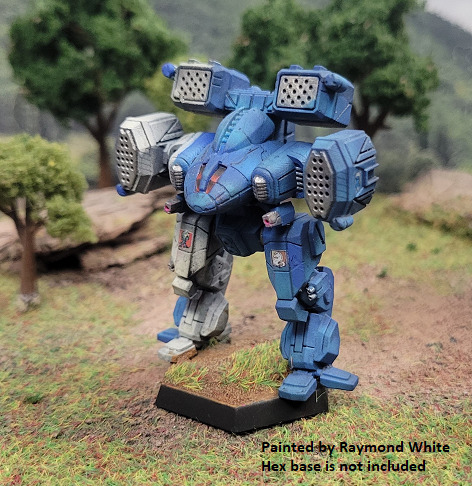

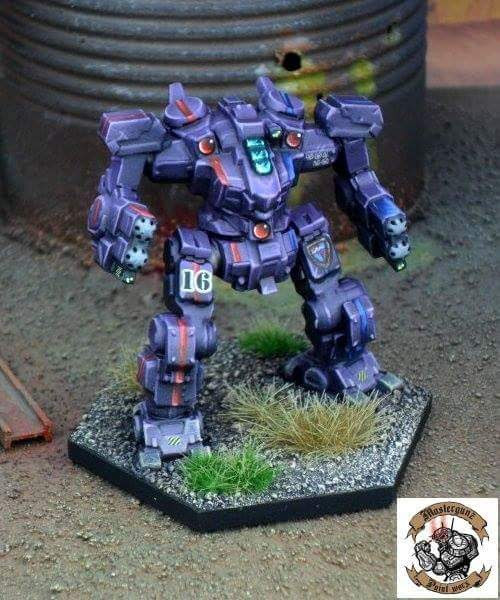
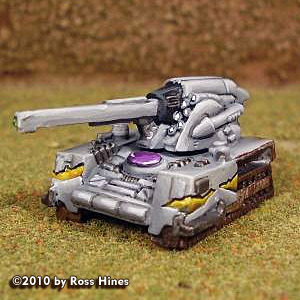
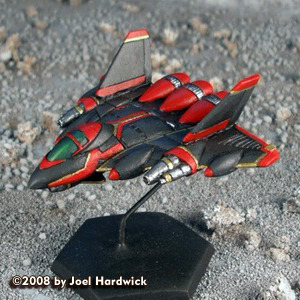
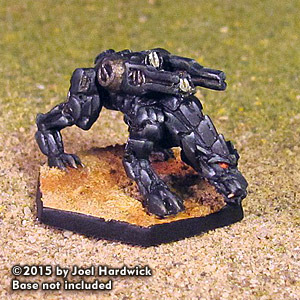

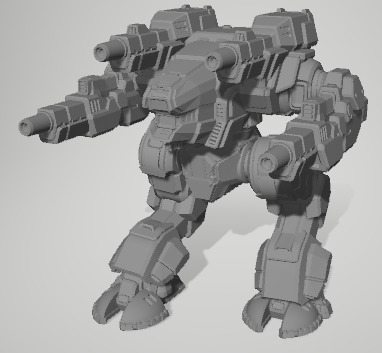
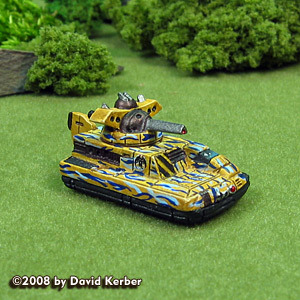
Just in for BattleTech from Iron Wind Metals!
20-044 MAKO Corvette
20-245 DUAN GUNG D9-G9
20-274 BLOOD ASP PRIME
20-288 ENYO STRIKE TANK (2)
20-305 Scorpion Light Tank (2)
20-361 Thorn THE-N
20-410 Malak C-MK-O Invictus
20-418 Huron Warrior HUR-WO-R4L
20-5028 Osprey OSP-26
20-5092 Doloire DLR-O
20-5121 Lu Wei Bing LN-4B
20-5122 Tenshi TN-10-O Prime
20-5128 Highlander HGN-732 Resculpt
20-5134 Juliano JLN-5A
20-5139 Roadrunner RD-1R
20-5141 Shadow Hawk SHD-2H
20-5161 HawkWolf HWK-4F
20-5169 Shadow Hawk SHD-2Hb
20-5183 Locust LCT-1V
20-5193 Hierofalcon Prime / A
20-5199 Viking IIC
20-5203 Ryoken (Stormcrow) TC / B
20-5205 BattleMaster BLR-1G / 1Gb
20-5207 Black Knight BL-9KNT
20-5209 Crucible (Standard) / 2
20-621 Wraith TR1
20-634 EPONA PURSUIT TANK (2)
20-648 VENOM SDR-9K
20-740 Behemoth Heavy Tank (2)
20-749 Goblin Infantry Support Vehicle (2)
20-750 Rommel / Patton Tank (2)
20-776 Coolant Truck (2)
20-783 J. Edgar Hover Light Tank (2)
20-800 Hex Bases (4)
20-902 Charger CGR-1A5
20-909 DRAGONFIRE DGR-3F
20-9122 Battleforce Hex Base
99-201 Large Flat Top Hex Base #1
99-202 Large Flat Top Hex Base #2
99-203 Extra Large Flat Top Hex Base
AC-001 Single Micro Fighter Base and Stand
BT-001 Orc Protomech
BT-006 Phalanx Battle Armor
BT-025 Sassanid
BT-060 Excalibur
BT-066 Scout ATV
BT-092 Samurai Micro Fighter
BT-119 Gotha Micro Fighter
BT-165 Striga Micro Fighter
BT-167 Shade Micro Fighter
BT-173 Sai Micro Fighter
BT-202 Rogue Bear Heavy Battle Armor
BT-205 Interdictor Pocket Warship
BT-237 Recon Infantry
BT-240 SpecOps Paratrooper
BT-245 Heavy Infantry - Firing
BT-255 Dragau Drone Pocket Warship
BT-271 Conqueror Battle Cruiser
BT-280 Charger CHR-1A1
BT-286 Procyon Quad Protomech
BT-289 Gestalt D2X-G
BT-297 Ares ARS-V1A Hera
BT-326 Stinger LAM MK I STG-A1 (Air Mech)
BT-331 Phoenix Hawk LAM MK I PHX-HK1 (Mech)
BT-333 Phoenix Hawk LAM MK I PHX-HK1 (Fighter)
BT-343 Tomahawk II A
BT-371 Davion Infantry (3)
BT-376 Minotaur Protomech
BT-381 Basic Inner Sphere Battle Armor (3)
BT-390 Fa-Shih Battle Armor (3)
BT-404 Wusun Prime Micro Fighter
BT-413 Marauder Battle Armor
BT-427 Balac Strike VTOL (Standard) & (LRM)
BT-439 Black Wolf Battle Armor
BT-467 Hierofalcon B
FT-019 Kirghiz Mech Scale Fighter
20-679C Raptor RTX1-O Weapons
20-725CHB Cavalry Attack Helicopter Chopper Blade
https://www.ariesgamesandminis.com/index.php/shopping/category/12-iron-wind-metals.html
#battletech #alphastrike #ironwindmetals #claninvasion #miniatures #catalystgamelabs #battlemech #mechwarrior #mwo #mecha #tabletop #tabletopgames #tabletopgaming #wargaming #wargames #hobby #scifi #sciencefiction #miniaturepainting #mech #hovertank #6mmminis #6mmscifi #feldherr #dougram #gundam #robotech #armypainter #thearmypainter #chessex
1 note
·
View note
Note
Not sure if you know this, but in Chinese culture, white is the color of mourning. So WWX is basically just wearing normal, practical dark clothes he can get dirty without having to deal with much fuss, and all of Lan clan are like "Hi. We're tastefully rich demon hunters with a very strict code of conduct. Also we're goth as FUCK. Peace out. (floats majestically away)"
I did know that and I love it beyond words, holy shit, this entire clan of ethereal beautiful mountain-dwelling magical warriors who descend into the Common Folk and get nothing but the weirdest side-eye.
On an angstier note, at least Lan Wangji won’t have to change his clothes much after Wei Wuxian’s death.
Actually, as long as we’re on the subject of Chinese culture, I’ve always been very curious, do Chinese sword forms not accommodate the idea of a sword belt? I can see the obvious advantages to using your scabbard as a sort of second tool, in order to block attacks etc, but on the other hand (snrk) having a free hand has some obvious upsides too. Does “carry your sheathed sword in your non-dominant hand” yield an advantage specific to the style or was it because of something else? Was it even a real thing in Chinese combat history? I am reasonably sure that infantry soldiers wore sword belts, but was it a thing if you were of a certain status?
My cultural questions are always very niche and I am still on brand even in my current state.
#the untamed#one (1) person went 'lwj thinks of himself as a widower' and i immediately went 'damn rIGHT DAMN FUCKING RIGHT'#and y'all folks will NEVER know peace#someday i will get in touch with my inner angsty 14 yr old and write a fic about lwj just...continuing in the wake of the end of his world#he is Continuing#he is doing his duty and loving his son and protecting his clan and eating and dressing and BREATHING#and could everyone just calm down he is Continuing#if he looks tired it's because he works hard#he is there on time for every meeting and dressed perfectly for every formal occasion#he is a good father and a good cultivator and a good brother and a good nephew#he has not answered the question 'are you okay' in four years but he is Continuing#no one has even seen him cry since that first awful day he is hanguang-jun and he is carrying on as ever#someday someone says that the honorable lan wangji might want to look into getting married for the sake of the clan#and he doesn't show a flicker of the sudden ragged anguish that bursts in his chest as he says neutrally 'i will not marry again'#and that...that's the end of it#GOD i love me some good angst#would love an answer to that question about scabbards though! very curious!#a queue we will keep and our honor someday avenge#Anonymous#asked and answered
33 notes
·
View notes
Text
The forbidden crack! Untamed prompts: 5/?
Last Exile AU: “Cloud Age Symphony”
[if you have no idea what Last Exile is: I’m sorry. It’s a 2003 steampunk anime series with the biggest potential in history. Check it out if you can!]
[if you HAVE seen Last Exile: thank god someone else exists! The second season was not that great and had too much fanservice imo but the aesthetics bro. Bro. I’m still not over how beautiful everything was. The first season was gritty af and I loved it, I loved Dio Eraclea with all my heart, one of my first sons ever. But the second season was so bright! So colorful. I miss enjoying things sometimes.]
[the title is from the opening of the first series: a masterpiece, I still listen to it regularly]
The nations of Gusu and Qishan are are war, following rules set by the arbitrary faction of the Lanling Jin Sect, who provides them with the technology and antigravity fuel necessary to promote the aerial conflict and keep the population under its control through economic development and resources availability.
Without the regulations imposed by the Lanling Jin Sect, none of the airships implemented during the war could ever fight, since the winds of the region that lies between the two nations are too powerful to face with regular infantry by foot and artillery.
Maestro Jin GuangYao, the decadent aristocratic at the head of the Sect, keeps an iron hold on the known world, his diplomatic ways seldom more powerful than his ruthless actions to subjugate the population year after year. His only nephew Jin Ling, fearless pilot of the Sect who flies solo with no navigator, is weary of him on the account of the psychological tricks his uncle had played on him over the years, and refuses to openly oppose him.
However, he somehow manages to engage in a never ending rivalry with a mysterious courier airship coming from the city of Lotus Pier during a mission. Time after time Jin Ling grows curious of both the pilot and navigator of the ship, known as the Two Prides of the Yunmeng region: Wei WuXian and Jiang Cheng, who deliver messages for the aristocrats of the many lands and isolated cities under Gusu’s control. But one day Jin Ling engages in battle with them more out of boredom than anything else, forcing them to seek refuge on the battleship Baxia from the Unclean Realm.
On the ship, Wei WuXian and Jiang Cheng are treated as intruders, surveilled closely by the best pilot in Gusu, Lan WangJi. His cold demeanor and appearance at odds with his brother’s: Lan XiChen, the first officer of the Baxia, who manages to keep the captain from sending the couriers flying off the ship only thanks to his good nature and penchant for diplomacy. Nie MingJue, in fact, has long ago started a feud with Jin GuangYao and doesn’t have time for lost pilots seeking help under his jurisdiction. Not anymore.
Baxia and it’s crew have nothing to do with the war between Gusu and Qishan and the captain see nothing useful in making useless civilians a charity case.
When he hears this, Wei WuXian offers to help, if nothing to provide his adoptive brother Jiang Cheng with a chance to heal after being injured in the battle with Jin Ling so that both of them could eventually get back to Yunmeng in one piece. Nie MingJue, too preoccupied with his revenge to care, orders him around with impossible tasks and asks Lan WangJi to keep an eye on him.
Without a navigator, the only thing Wei WuXian can do is trying to befriend Lan WangJi and convince him of his talent, asking him to be his navigator. The other refuses, having being a solo pilot ever since his brother became Baxia’s executive officer, and merely accepts to back him up in every new mission while on different ships. One day they save two pilot siblings seeking asylum from Qishan, Wen Qing and Wen Ning, who reveal that their nation has surrendered long ago, but that the attacks from Gusu had never stopped, forcing their nation to travel across the Grand Stream winds above Burial Mounds, the stripe of land between Gusu and Qishan. The siblings have no idea whether their family is safe or not, and both Wei WuXian and Lan WangJi suspect something is wrong.
As they discuss the matter hiding in a mountain cave close to Burial Mounds, shielding from the storm as they wait to send a light signal up in the air for Baxia to intercept, Lan WangJi decides to take Wen Qing abroad his ship and Wei WuXian will do the same with Wen Ning since the siblings’ airship has broken down.
But, as soon as the storm gets to an end, Jin Ling arrives and wreaks havoc in the cave. Wei WuXian keeps him occupied so that Lan WangJi and Wen Qing can fly back to Baxia and send help to the cave. However, the last thing Lan WangJi sees is the Yunmeng ship being swallowed by the strong winds over Burial Mounds, both Wei WuXian and Wen Ning luring Jin Ling in the midst of the Grand Stream to distract him.
Little do they know that Jin Ling has been ordered to seek out the two fugitive messengers from Quishan all along and he is actually the one luring Wei WuXian’s ship away from safety and deep into the clutches of the Lanling Jin Sect’s floating ship: Koi Tower.
Surrounded by luxury and riches, Wei WuXian and Wen Ning don’t even know if Maestro Jin GuangYao is playing with them or if they are actually too insignificant to be considered a threat. The leader of the Sect shows them around and waxes poetry over the work he has implemented to maintain peace for all these years, painting rogue captains like Nie MingJue as the real culprits as the only warmongers among them. Wei WuXian finally meets Jin Ling after so many air battles, hiding behind his golden helmet, and he is terrified to notice how much he resembles Jiang Cheng. The same eyes, the same grumpiness and ruthless behavior. Suddenly he remembers how Jiang Cheng’s older sister had disappeared after her marriage with a mysterious man who had escaped the Sect’s wrath fifteen years prior. A man who even Jiang Cheng didn’t dare name out of anger for seducing his sister away from Yunmeng and everything she knew. The realization that Jin Ling, around fourteen years old, could be Jiang Cheng’s nephew hits Wei WuXian as he gets to know the kid ten years his junior.
On the Baxia, Lan XiChen is notified of Wei WuXian’s disappearance and talks extensively with Wen Qing about the situation in Qishan. He realizes the Lanling Jin Sect must have purposefully mislead Gusu’s officials into believing Nightless City had refused to surrender despite everything.
After talking with his younger brother on the matter, XiChen decided to go back to Cloud Recesses, Gusu’s capital, and ask their uncle Emperor Lan QuiRen for forgiveness after temporary fleeing from home and his responsibilities as heir. Despite his wish to see Lan WangJi living a free life in the sky instead of being married off to some stranger because of some political alliances, taking his younger brother away to protect him has been Lan XiChen’s only fault and he needs to go back to Gusu and speak the truth about the wrongdoings of the Lanling Jin Sect.
He says his farewell to Nie MingJue, now blinded by rage towards Jin GuangYao, and leaves for Cloud Recesses with an heavy heart.
On Koi Tower, however, Wei WuXian learns Jin Ling’s mother is still alive and well: turns out her husband had been part of the Lanling Jin Sect and had decided to flee Koi Tower to pursue a normal life with this woman who had hidden him from the Sect’s search parties over and over again. Both Jin Ling’s parents had been sought out in the end and the man was killed for his betrayal, while the woman was allowed to live and raise their son. Jiang Cheng’s sister hadn’t been kidnapped then: she had simply tried to protect her lover and her family in Yunmeng from the Sect’s wrath all along!
Wei WuXian doesn’t have time to ask where his adoptive sister is that Jin Ling is summoned by Jin GuangYao for his coming of age ceremony.
In the meantime Lan WangJi worries over Wei WuXian’s wellbeing and plans his escape to go find him all the way to Koi Tower to get him back. Nie MingJue doesn’t yet know that his best pilot is planning to leave him alone, but Jiang Cheng –now completely healed and fueled by rage– decided to join as Lan WangJi’s navigator. The two of them leave with the promise to bring Wen Ning back as well, as long as Wen Qing will be able to keep the captain from finding out.
They leave for the Grand Stream and hope for the best.
Jin Ling is terrified of the prospect of facing his coming of age ceremony, if nothing because he knows he can’t disappoint Jin GuangYao in front of the entire Sect. His mother’s life depends on him and he has to fulfill his uncle wishes on matter what. A tournament takes place and Jin Ling must win. The more he strikes, the less human he feels, unaware of the too deep wounds on his body as he slices his way through the competition. As final proof of his nephew’s loyalty, Jin GuangYao coaxes him closer and orders him to kill the two visitors the boy himself had brought in Koi Tower. But having befriended them over the course of their captivity, Jin Ling hesitates and his uncle cuts his throat in front of the entire Sect.
Horrified, Wei WuXian comes to the rescue and snatches the boy away from there, pressing down on his wound to keep him alive. Wen Ning defends them as they escape, but he is intercepted by the leader’s personal guard, Xue Yang, who fights with him as WuXian and Jin Ling looks for his mother in Koi Tower.
Having finally noticed Lan WangJi’s disappearance, Nie MingJue decides to strike Koi Tower at once: foreseeing his betrayal, he had planted a transmitter on his airship that will lead Baxia straight to Koi Tower, which location has been unknown for over ten years.
Lan WangJi finally arrives and finds Wei WuXian as the other is trying to sneak out Jin Ling and his mother out of Koi Tower. Jiang Cheng doesn’t waste time in pleasantries, too shocked after discovering the truth, that decides to take his sister and injured nephew back on land before it’s too late. Wei WuXian and Lan WangJi find Wen Ning after he has successfully killed Xue Yang and the three of them look for a way to escape. Having left Jiang Cheng with the only ship available, Wei WuXian wants to find the one he and Wen Ning have arrived on Koi Tower with, but they don’t know where that might be.
As they hide in Koi Tower looking for it, Nie MingJue arrives on Baxia and is surrounded by Sect disciples and captured. While he is interrogated by Jin GuangYao, Wei WuXian sneaks around and witness the interaction: discovering Jin GuangYao has killed Nie HuaiSang ten years ago, forcing the boy’s older brother MingJue to seek revenge. Wei WuXian also find out that the Grand Stream is controlled by the Sect thanks to a mysterious stone, the Stygian Metal, and that only once in possession of this one can extinguish the deadly winds slicing through the stirpe of land that is Burial Mounds. Nie MingJue has known this all along, after his younger brother has successfully infiltrated the Sect and send him a message before his death, but being a rogue captain uninterested with the current war, he had kept silent for years. Maybe Gusu and Qishan could have been allies against the Sect all along if not for the captain’s stubborn silence on the matter.
Humoring his nemesis until his least breath, Nie MingJue is able to kick Jin GuangYao from the stairs even if tied up, giving Wei WuXian the chance to kill the Sect leader and get the Stygian Metal from the pendant around his neck.
Having changed master, the pendant refuses to accept Wei WuXian as a new Maestro, making Koi Tower’s antigravity core useless against the strong winds of the Grand Stream underneath the ship. But Lan WangJi finds him and starts to incessantly recite a string of lyrics from a chant his brother Lan XiChen had taught him before departing. A chant aimed to control the Stygian Metal: another piece of information that Nie HuaiSang had sent to Baxia but that a younger Lan XiChen had intercepted first. The first officer of the Baxia used to be a mere refugee at the time, along with his younger brother, and hoped to force Nie MingJue to keep them on the Baxia in exchange for the last message from Nie HuaiSang regarding the chant to control the pendant. In the end, the captain had preferred to let him have that information instead, so that if Nie MinJue himself were to be held captive by either Gusu or Qishan, none of the two nations could extract that secret from him and abuse the power of the pendant.
Having kept the secret for ten years, Lan XiChen had finally entrusted it to WangJi before leaving for Gusu and send a fleet to back the Baxia.
With extreme effort, both Wei WuXian and Lan WangJi finally control the pendant and manage to slowly lower Koi Tower to the ground as they diminish the Grand Stream to a mere whisper of wind.
Refusing to reveal the details of their success, neither Wei WuXian or Lan WangJi say a word about the pendant and decide to destroy it instead, Lan XiChen keeps the secret as he is crowned Emperor of Gusu and sends help to the starving nation of Qishan. Wei WuXian and Lan WangJi leave for Lotus Pier in the Yunmeng region before helping the Wen siblings to find the remains of their clan in Burial Mounds.
The sky has never been clearer.
–the end.
#mdzs#mo dao zu shi#the untamed#wangxian#nielan#the forbidden crack! untamed prompts#mdzs/au: steampunk#mdzs/au: manga/anime inspired#mdzs/au: last exile
2 notes
·
View notes
Photo

Wei Infantry
Wei won the battle of Hefei when Zhang Liao defeated Sun Quan and then foiled a Wu scheme to incite rebellion.
Artist: LHQ
TCG Player Link
Scryfall Link
EDHREC Link
4 notes
·
View notes